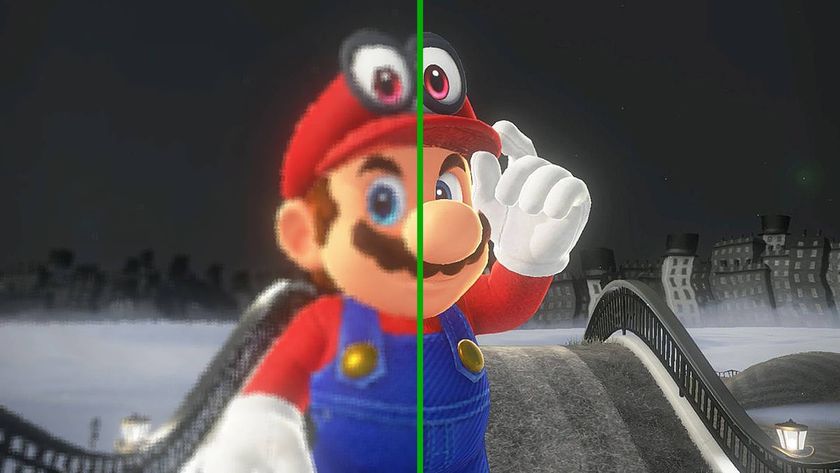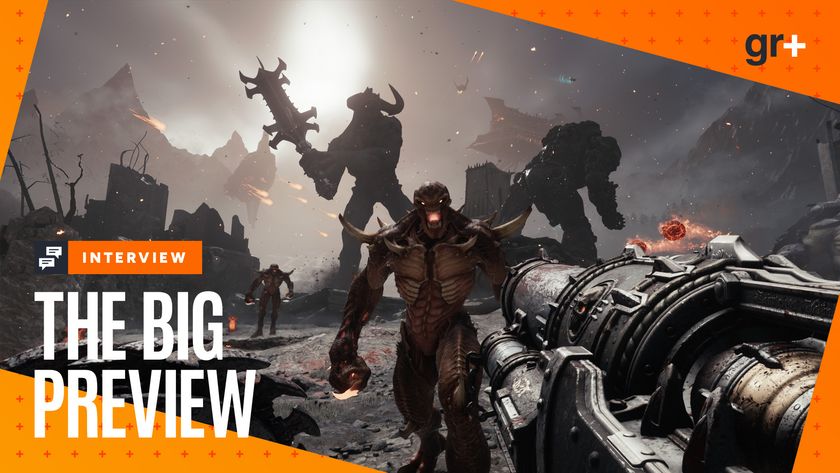Why Steam works
How Valve is revitalizing PC gaming
Valve has already presented Steamworks to publishers. Jason Holtman, director of business development for Valve, has gauged their reactions. “When they see it they say ‘this solves a whole bunch of tech and customer problems I have. And also solves this business problem I have’. They run around trying to put these things together and it happens towards the end of their development and they’re now like ‘wow, the things I get in CS, Half-Life 2 and Orange Box are all just there and working.’”
PC Gamer asked the opinion of a few other developers who’d perused what Steamworks had to offer. Miles Jacobson, Managing Director of Sports Interactive, makers of Football Manager, was more cautious: “It’s obviously of benefit to smaller developers to be able to get a suite of tools like this for free, and will help to encourage more people to start using digital distribution methods, which is the likely reason for Valve doing this.

Above: The Orange Box - Portal
“However, there are still massive pockets of the world where broadband penetration is small, and as long as there are boxed copies of games, the tools won’t do much to stop piracy. There are also still issues with online authentication of software, as it is limiting for those who play games on laptops.
“So whilst it’s a good decision from Valve, both for the PC developers and for themselves, it’s not the Holy Grail, as you aren’t able to get to enough consumers to negate the need for traditional distribution methods, leaving a choice of selling fewer games by only hitting a small part of the market, or selling fewer games by having your game pirated, as the suite doesn’t work for traditional boxed copies of the games.”
But Splash Damage’s Stephen Gaffney had a more optimistic view. “It’s partly self-serving for Valve, having invested so much in Steam, but the upshot for gamers is that there is someone with active interest in the future of PC gaming and continuing to make the platform viable for gamers, publishers and developers. While we haven’t seen the full rundown of how it all works, for independent developers distributing their own games, it looks great. The back-end systems for community, piracy prevention and distribution that Valve is offering are solid, and it would take years to build something similarly effective on your own.

Above: The Orange Box - Team Fortress 2
Sign up to the 12DOVE Newsletter
Weekly digests, tales from the communities you love, and more
“There might be some resistance at publisher level due to possible conflicts of interest - they’re a secretive lot - but the tools and APIs Valve is making available could save so much time and hassle (particularly when it comes to running beta tests and protecting games from piracy) that it’s difficult to see any technical reason not to use Steamworks. And the price is right.”
With last year’s release of the Orange Box and Steam Community, the promise of Steam was finally fulfilled. But Steam is more than a digital delivery platform to Valve. It represents half-a-decade’s problem solving. How to connect with gamers. How to protect games from being pirated. How to track sales. Valve took the time to engage with all these problems, and now every developer in the world can benefit from their work.
Post-Orange Box, Valve is hoping to add to the community features. They have plans to store screenshots, config files and save games. They have a long list of ideas that will feed back into Steam and Steamworks. All this for free? Is there a better investment?
Jun 13, 2008













